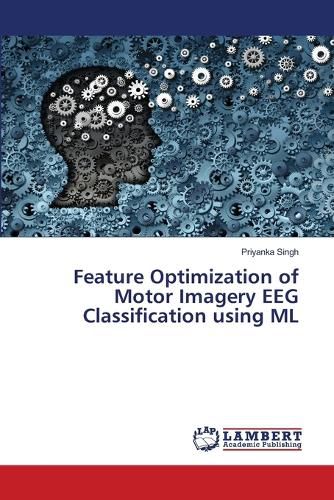Readings Newsletter
Become a Readings Member to make your shopping experience even easier.
Sign in or sign up for free!
You’re not far away from qualifying for FREE standard shipping within Australia
You’ve qualified for FREE standard shipping within Australia
The cart is loading…






This title is printed to order. This book may have been self-published. If so, we cannot guarantee the quality of the content. In the main most books will have gone through the editing process however some may not. We therefore suggest that you be aware of this before ordering this book. If in doubt check either the author or publisher’s details as we are unable to accept any returns unless they are faulty. Please contact us if you have any questions.
Brain-computer interfaces (BCIs) hold great promise in biomedical engineering, particularly for diagnosing critical diseases. Motor imagery (MI) EEG classification, a key BCI process, faces challenges due to the complexity and non-stationary nature of EEG signals. These signals, recorded via electrodes, are digitized and analyzed using feature extraction techniques like FFT, STFT, CSP, and wavelet transforms, with wavelet transform being the most effective.This study proposes a deep neural network-based classification algorithm with teacher-learning-based optimization for feature refinement. Tested on a standard BCI dataset in MATLAB, the algorithm surpasses Bayesian and ensemble machine learning classifiers, enhancing classification accuracy and BCI system performance.
$9.00 standard shipping within Australia
FREE standard shipping within Australia for orders over $100.00
Express & International shipping calculated at checkout
This title is printed to order. This book may have been self-published. If so, we cannot guarantee the quality of the content. In the main most books will have gone through the editing process however some may not. We therefore suggest that you be aware of this before ordering this book. If in doubt check either the author or publisher’s details as we are unable to accept any returns unless they are faulty. Please contact us if you have any questions.
Brain-computer interfaces (BCIs) hold great promise in biomedical engineering, particularly for diagnosing critical diseases. Motor imagery (MI) EEG classification, a key BCI process, faces challenges due to the complexity and non-stationary nature of EEG signals. These signals, recorded via electrodes, are digitized and analyzed using feature extraction techniques like FFT, STFT, CSP, and wavelet transforms, with wavelet transform being the most effective.This study proposes a deep neural network-based classification algorithm with teacher-learning-based optimization for feature refinement. Tested on a standard BCI dataset in MATLAB, the algorithm surpasses Bayesian and ensemble machine learning classifiers, enhancing classification accuracy and BCI system performance.